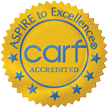This article provides tips for navigating triggers and temptations during addiction recovery, including identifying triggers, developing coping strategies, and seeking support. It emphasizes the importance of self-care, mindfulness, and a positive mindset in maintaining long-term recovery.

Addiction recovery is a challenging journey, and one of the biggest hurdles is navigating triggers and temptations. Triggers can be anything that spark a craving, such as a certain place or person, while temptations can be any situation that makes it hard to say no to using. Here are some tips to help you navigate these challenges:
- It’s important to identify your triggers and temptations. This will help you prepare for situations that may arise and plan ahead. For example, if seeing old friends is a trigger, it may be helpful to avoid them until you feel more confident in your recovery.
- Reach out for support. Whether it’s a trusted friend or family member, a support group, or a therapist, having someone to talk to can make a huge difference in staying on track with recovery.
- Develop healthy coping mechanisms. This can include things like exercise, meditation, or creative outlets like painting or writing. Finding healthy ways to manage stress and emotions can help prevent relapse.
- Make a plan for how to handle cravings. This can include things like distraction techniques, such as going for a walk or calling a friend, or using mindfulness techniques like deep breathing or meditation to ride out the urge to use.
- Be kind to yourself. Recovery is a journey, and there will be ups and downs along the way. It’s important to acknowledge progress and celebrate small victories along the way.
Remember, recovery is a process, and it takes time and effort. Navigating triggers and temptations is just one part of that process. By identifying your triggers, reaching out for support, developing healthy coping mechanisms, making a plan for handling cravings, and being kind to yourself, you can stay on track with your recovery journey.




